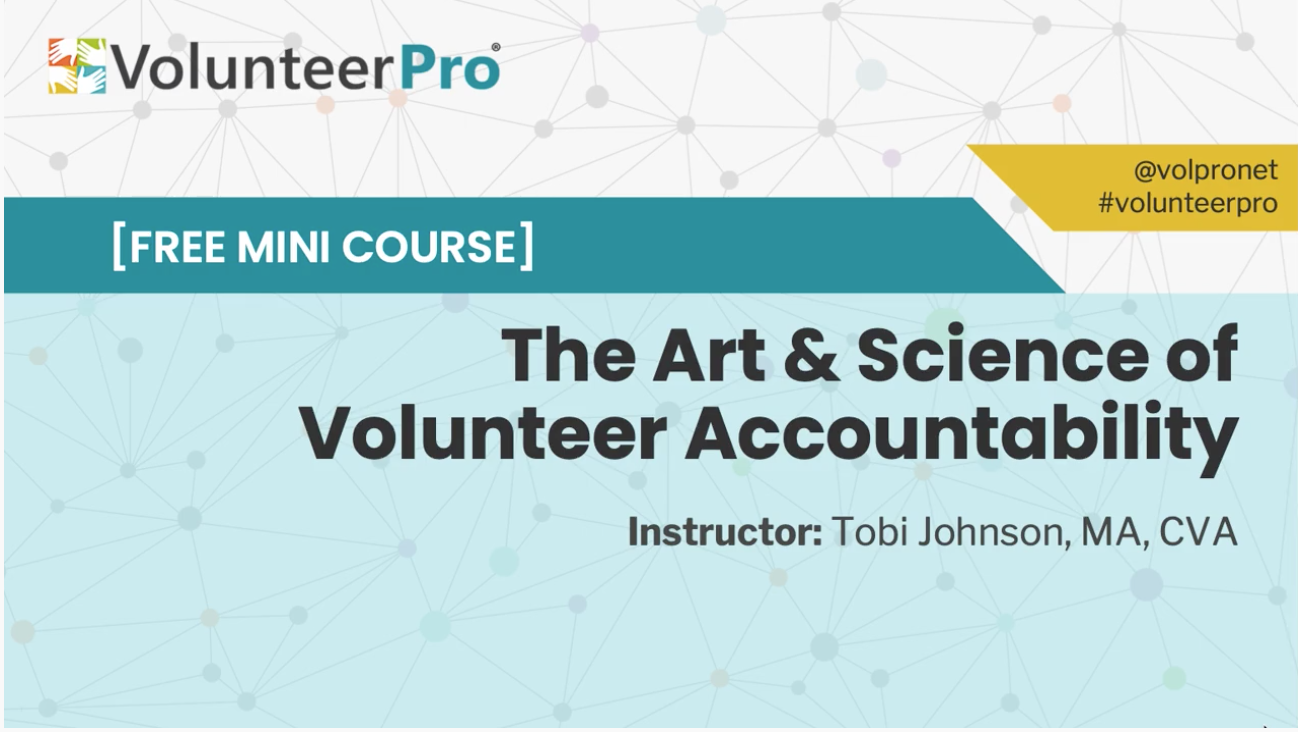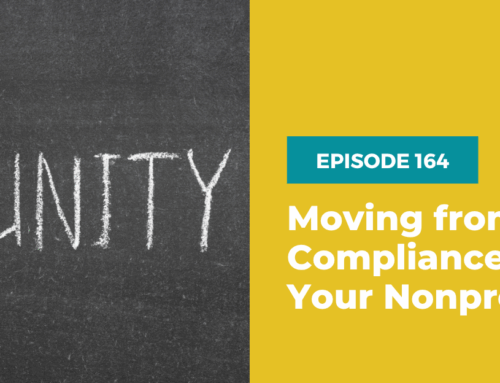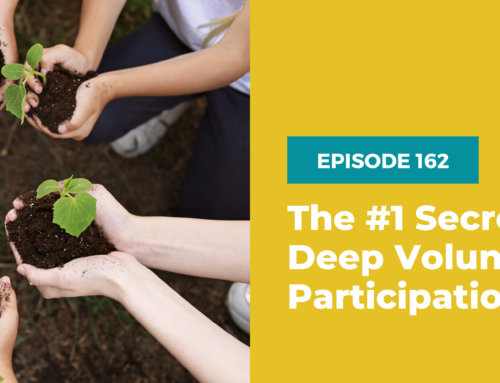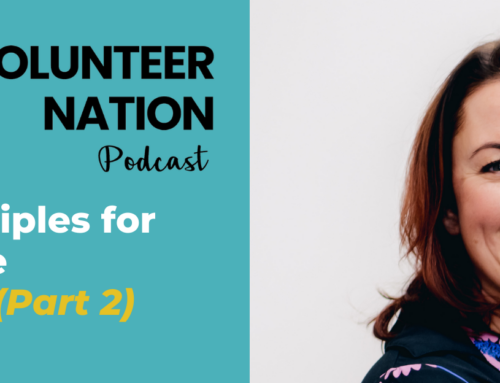
The Complete Guide to Better Volunteer Thank You Notes
Volunteer thank you notes should be a key component of your volunteer recognition strategy. And, what better time of year than now to show your supporters some love?
‘Tis the season for giving thanks, showing appreciation, and showering the people you love with gifts. We recommend checking your list twice to ensure your nonprofit’s volunteers are receiving recognition from you as a leader of volunteers.
This recognition doesn’t have to be in the form of expensive gifts, dinners, or loud proclamations of how amazing they are. Of course, volunteers may appreciate these tokens of your appreciation; however, I’d like to argue that none of them will be more powerful than the experience of receiving a personal, heartfelt volunteer thank you note.
Want to make sure your volunteer thank you notes are hitting the mark, and not just being tossed into the junk mail for recycling?
Check out our guide to better volunteer thank you notes to ensure your appreciation notes are authentic, meaningful, and creative, AND motivate your volunteers to keep serving in a meaningful capacity.
Why Supporters Will Appreciate a Handwritten Volunteer Thank You Note
When volunteers realize you notice the big and little things they do (and the sacrifices they make) to serve, it can be highly motivating. Appreciation doesn’t always have to be a grand gesture. A simple acknowledgment is what most of us want. So, make writing short thank you notes a part of your weekly schedule.
Your busy schedule and ever-growing to-do list may make writing volunteer thank you notes on a consistent basis seem like wishful thinking.
But here are some reasons why carving out time to write volunteer thank you notes is important:
- Getting an actual card in the mail from an actual person is rare.
- Most volunteers understand how busy you are; knowing that you take time to personally thank them will make them feel valued.
- Volunteers will appreciate your efficient use of resources. Many volunteers don’t want nonprofits to spend limited resources on plaques, pins, or slick mail campaigns.
- Day made! For some folks, this card will put a smile on their face for their entire day.

Writing Volunteer Thank You Notes is a Habit that Can Benefit Your Nonprofit, Too!
Don’t be surprised when the warm fuzzies strike you as you sit down to write your next round of volunteer thank you notes. You will deepen your relationships, and you shouldn’t be surprised if volunteers come back to help again and again.
How to Get Your Creative Writing Juices Flowing

If you aren’t in the habit of writing notes of appreciation, you might have a difficult time getting started.
Have no fear! We have you covered with the following writing prompts:
- What has this person sacrificed to contribute their time to our agency?
- In what areas have they shared something unique with our organization?
- In what ways have they struggled, and overcome, an obstacle here?
- How have they improved their knowledge, skills, or abilities to serve?
- How has this volunteer helped foster teamwork or morale?
- What specific achievements has the volunteer realized, either as an individual or part of a team?
Also, remember to connect your gratitude back to what motivated the volunteer to join you in the first place. Refer to the six research-based prime motivators of volunteers to prompt your comments. Ask yourself, “What are the key motivations of this volunteer or board member? What would be most important to reinforce?”
- Protective Motives – a way to protect the ego from the challenges of life
- Values – a way to express ones altruistic and humanitarian values
- Career – a way to improve career prospects
- Social – a way to develop and strengthen social ties
- Understanding –a way to gain knowledge, skills, and abilities
- Enhancement – a way to help the ego grow and develop
The most important thing to remember when writing each note is you want to focus on an individual’s achievements NOT their personal attributes or character.
6 Characteristics of the Perfect Volunteer Thank You Note
1. Make your note personal and acknowledge their specific contribution
This may seem super obvious but address your thank you letter or note using the volunteer’s name.
Tell them specifically what you’ve noticed or what they did that went above and beyond.
“Thanks for your time and commitment” is fine. “Thank you for staying late to scoop out 15 extra dog kennels,” says you know their time is valuable, and you noticed they gave it to your organization.
This could also be an opportunity to mention ways they’ve contributed in the past. Has this volunteer been with you for a long time? Have they served in other capacities? Are they a donor?
You don’t have to write them a laundry list of their accomplishments but thinking about their history with your organization and noting it when appropriate makes your note even more personal. This lets the volunteer know you really see their worth.
2. Make your volunteer thank you notes and letters specific
Point to something a volunteer did, or the way they made someone feel, and say thank you specifically for that. Typically, you’d look for ways a volunteer goes above and beyond their role.
It also could be a place where you see the extraordinary in the ordinary. Maybe the “above and beyond” for your volunteer is that you know you can always count on them.
For example, “Tammy, you come to the shelter every week and quietly take care of the checklist of tasks. I saw you come in today, and it just struck me that I don’t know how we’d get through a week without your kind and consistent service.”
3. Connect your letter to the mission
Remember, volunteers are with you because they want to advance your mission with their own two hands. They really care about your work. When you communicate your gratitude, connect it to the mission in order to underscore the impact of their work.
They chose you and your organization for a reason. Remind them regularly that they chose well because they are making a difference with their work.
For example, “It may seem like washing towels and cleaning the dogs’ toys are simply busy work. But because you give your time to do these tasks, the rescue team was able to bring in five new dogs just last week. They can do that because they know you’re here to keep the kennels clean and safe.”
4. Make your letter timely
This is as much for you as it is for your volunteer. When you see or hear something you want to recognize, do it. Right away!
This way you won’t forget, and the experience is still fresh in the mind of the volunteer. Plus, the more quickly you acknowledge a positive experience, the sooner you reap the positive benefits from a happy, heart-warmed volunteer.
5. Be Vulnerable
This is easier for some than others but find a way to show how the volunteer’s actions or presence made you feel. You’re their person! Their leader!
Let them know you are personally impacted by their time – you are proud of how much they’ve given to the organization.
For example, “Kelly, we had been searching for someone with your skills for so long! Your work on our database has eased our whole intake process and the whole team is beyond grateful. Even more, I know how important it was for you to find a cause where you could really invest your skills, and I am personally so thankful that we connected. My work just got 10x easier, and I have you to thank for it. We are going to save so many more dogs now!”
6. Sign your name
Again, this might go without saying, but put pen to paper and sign your volunteer thank you letter. If you’re sending your note via email, still make sure to include a personal closing.
You’ll get bonus points if you can get a recipient of your organization’s services, a board member, your executive, or other high-ranking members of your team to write a note as well.
Your Recognition Toolbox
Make sure you have the basic tools to write your notes before you sit down to do them. Consider creating a small “gratitude box” that sits in your workspace and includes the following:
- Cards and Envelopes: Print some with your organization’s logo and info on them. Or just pick up some inexpensive packs when they’re on sale. You can also ask service beneficiaries to create hand-crafted cards. The best place to find ideas is Pinterest!
- Stamps: Ask for a pack of 20 (or more) from your bookkeeper or administration, so you have them ready to go whenever you need them.
- Return Address Labels: Use an office stamp or print out sheets of adhesive labels using an easy label template. Make sure they are small enough to easily fit on your envelope.
- An Updated Volunteer Contact List: Whether you have an electronic database, an Excel spreadsheet, or a notebook where you store volunteer information, make sure it is kept up to date. There’s nothing like getting a handwritten thank you note you put effort into returned in the mail as undeliverable.
Volunteer Appreciation Can Be Simple and Beneficial
 Volunteers may appreciate a special token of your organization’s gratitude, but the experience of receiving a personal and heartfelt volunteer thank you letter will remind them why they are doing what they are doing. They are driven to help your organization and your community, without pay, because by doing so, they can bring about improvements that matter in society.
Volunteers may appreciate a special token of your organization’s gratitude, but the experience of receiving a personal and heartfelt volunteer thank you letter will remind them why they are doing what they are doing. They are driven to help your organization and your community, without pay, because by doing so, they can bring about improvements that matter in society.
You don’t have to ditch the traditional volunteer acknowledgment goodies. People do love free t-shirts. Just remember that the most powerful acknowledgments require nothing but a quick note or email that is personal, specific, and thoughtful.
Lead by example — you can cultivate an environment of gratitude that can spread throughout your volunteer team and into your organization by showing everyone how it’s done.
Ready to Learn More about Volunteer Appreciation?
Volunteer retention is all about keeping your folks engaged.
Enjoying deep volunteer engagement and commitment isn’t magic! It takes a smart strategy.
VolunteerPro has a FREE mini-course that explains what it takes to be an “architect of experience” and realize success for your volunteer team. In this short lesson, I share how to harness the science of trust for better supervision and deepen connections with volunteers through purposeful strategy.








Leave A Comment